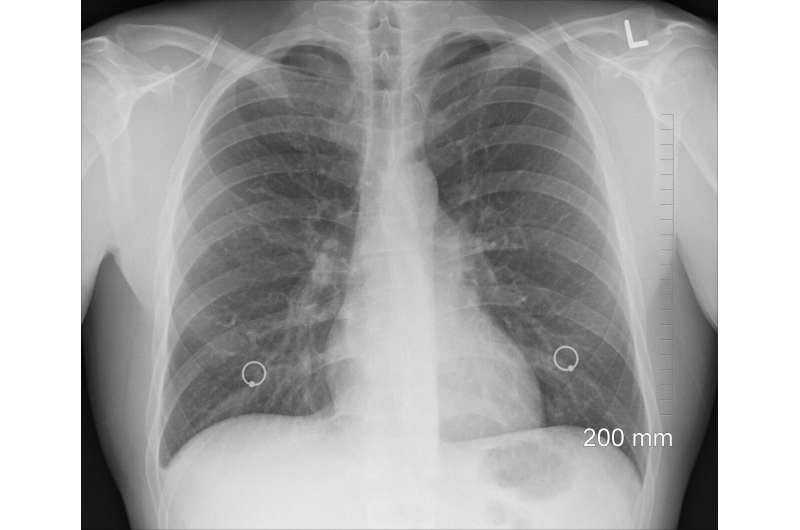
Early trials of the targeted drug repotrectinib suggest that it could help treat patients with a certain type of non-small cell lung cancer (NSCLC).
The results of the TRIDENT-1 trial, which will be presented on Friday at the 34th EORTC-NCI-AACR Symposium on Molecular Targets and Cancer Therapeutics in Barcelona, Spain, suggest that repotrectinib could be effective for treating ROS1 positive NSCLC, both in patients who have received other targeted treatments and in those who have not.
Repotrectinib has been designed to help patients with NSCLC that have a genetic rearrangement in their tumor cells called ROS1positive that can fuel cancer’s growth.
This type of NSCLC accounts for around one or two percent of lung cancer cases. It is more often found in younger people, women and people who never smoked.
The results of the trial are presented by Professor Byoung Chul Cho from Yonsei University College of Medicine in Seoul, South Korea. He said, “Repotrectinib is a new type of tyrosine kinase inhibitor drug, or TKI, that works by blocking the signals that tell cancer cells to grow and divide. Other TKIs are already in use for treating NSCLC, however, cancers can become resistant to these treatments. In particular, the cancer can spread to the brain where it is especially difficult to treat.”
TRIDENT-1 is a phase I/II clinical trial, meaning it was primarily run to test the safety and efficacy of the new treatment. All patients in the trial were given repotrectinib as a daily pill and could continue on the drug as long as they could tolerate it or until their condition deteriorated.
So far, the trial includes more than 400 people with ROS1 positive NSCLC who were treated at one of 150 hospitals around the world. Some had never been treated with a ROS TKI, some had already been treated with one ROS TKI, some had been treated with a ROS TKI and platinum-based chemotherapy and some had been treated with two different ROS TKIs.
Researchers have been able to assess the safety of the treatment in 444 patients. They have been able to assess the efficacy of the treatment in 171 patients. Among those who had not previously been treated with a ROS TKI, researchers found an “objective response rate” or ORR of 79%. This is a measure of whether patient’s tumors have disappeared or shrunk by at least 30% following treatment. In patients already treated with a ROS TKI, in patients treated with a ROS TKI and chemotherapy, and in patients treated with two different ROS TKIs, the ORRs were 38%, 42% and 28% respectively.
Among the small number of patients who had measurable tumors in the brain, the objective response rate on those tumors (intracranial ORR or iORR) was 88% in patients not previously treated with a ROS TKI, 42% in those treated with one prior ROS TKI, 50% in those treated with one prior ROS TKI and chemotherapy, and 0% in those treated with two prior ROS TKIs.
Side effects of the treatment included dizziness, changes to the sense of taste, constipation and anemia.
Professor Cho said, “These results suggest that repotrectinib is having an effect on tumors in patients with this type of lung cancer, including on tumors that have spread to the brain. There are signs that the drug could help both patients who have not been treated with a ROS TKI and those who have received previous treatment, suggesting that repotrectinib could have effects even when cancers become resistant to other treatments. I believe that further testing and development of this drug could help more patients with ROS1positive NSCLC.”
Source: Read Full Article


